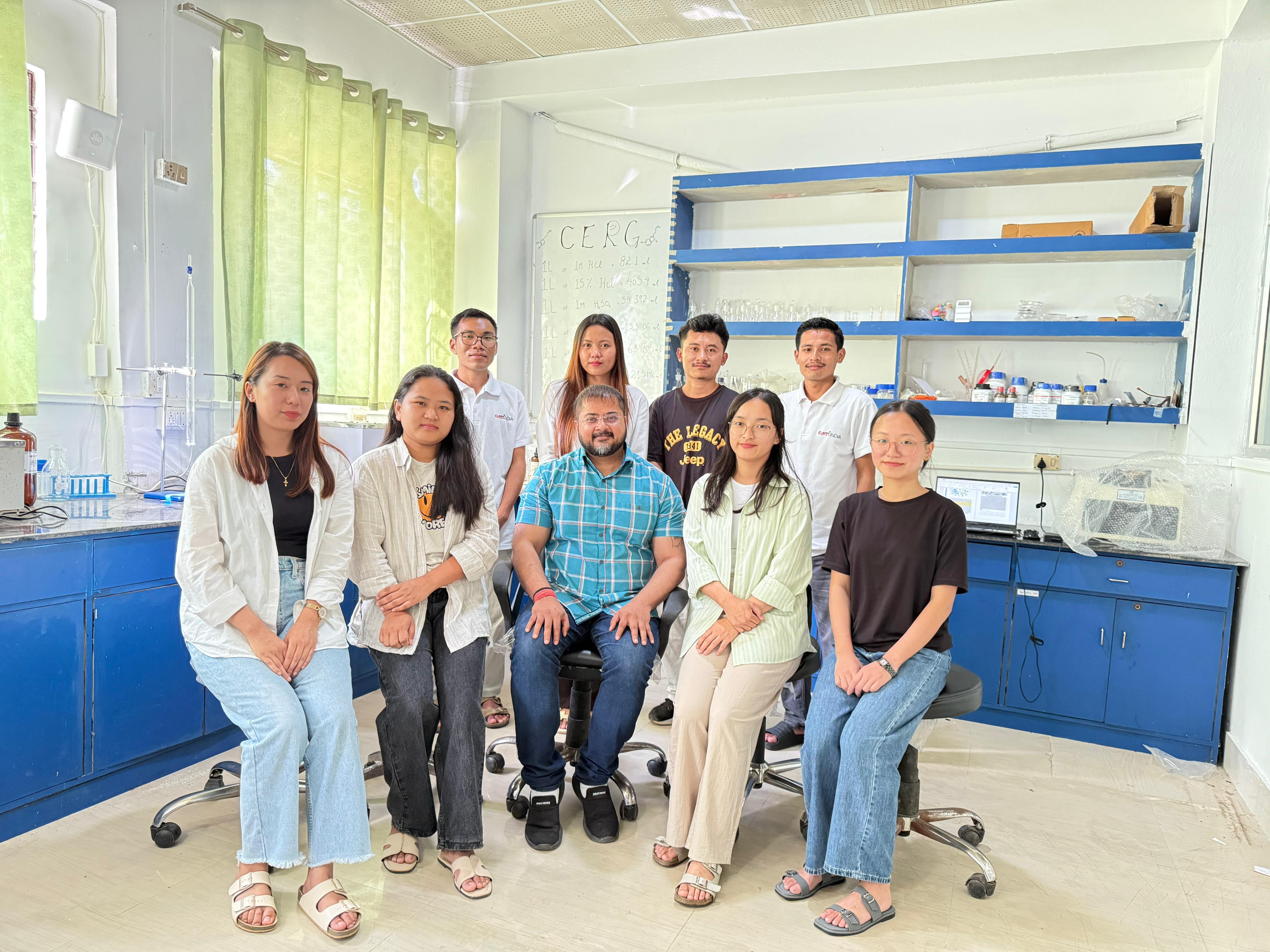Nagaland University researchers, with international collaborators, have identified eco-friendly lanthanide salts as next-generation sustainable corrosion inhibitors, offering industries a green alternative to toxic materials.
Published on Aug 12, 2025
By EMN
Share

DIMAPUR — An international team of researchers, led by Nagaland University, have proclaimed to have identified how lanthanide salts, a class of rare-earth compounds, can serve as next-generation, environmentally friendly corrosion inhibitors.
According to a press release issued by the university, this cutting-edge research charts a path for industrial applications in sectors such as oil and gas, marine engineering, automotive manufacturing, and renewable energy infrastructure.
It said that corrosion inhibitors are chemicals that slow down or prevent the corrosion (gradual degradation) of metals when exposed to air, water, chemicals, or other environmental factors.
Also read: Nagaland University Kohima Campus observes Anti-Ragging Day
“With global industries under increasing pressure to replace hazardous materials with sustainable alternatives, this research arrives at a crucial moment. It offers both a blueprint for future research and a strategic guide for industries aiming to adopt eco-friendly corrosion protection technologies,” the release claimed.
The research suggests that the corrosion inhibition potential of inorganic salts remains unexplored despite their association with many benefits and opportunities, such as low toxicity, compatibility, long-term stability, and the ability to protect against corrosion in solution and coating phases, among other advantages.
The potential of lanthanide salts in green corrosion inhibitors is also examined, emphasising the possibilities for sophisticated characterisation methods, AI prediction, and computational design.
The research looks at employing inorganic salts for next-generation sustainable corrosion protection. These eco-friendly salts provide excellent corrosion protection by inhibiting the anodic and cathodic reactions, forming surface oxides and hydroxides, and blocking the diffusion of corrosive species to the metal surface.
“This research, which is a significant leap for sustainable materials science in India, was taken up by eight PhD scholars from the Corrosion and Electrochemistry Research Group (CERG), Department of Chemistry, Nagaland University, under the mentorship of Prof. Ambrish Singh,” it said, adding that the findings have been published under the title ‘Lanthanide Salts in Sustainable Corrosion Protection: Chemistry, Progress, Mechanism, Challenges and Opportunities’ in ‘Coordination Chemistry Reviews’, one of the highest-ranked international peer-reviewed scientific journals from Elsevier, with a high impact factor of 23.5.
Congratulating the research team, Prof. Jagadish Kumar Patnaik, vice chancellor of Nagaland University, said that with global industries facing mounting pressure to transition from toxic substances to sustainable technologies, this discovery provides a strategic pathway for adopting safe, effective, and environmentally responsible corrosion protection methods.
Prof. Ambrish Singh of the Department of Chemistry, Nagaland University, said that their research integrates comprehensive studies on the chemistry, mechanistic pathways, and protective properties of lanthanide salts, alongside critical evaluations of their performance, limitations, and prospects. He stated that unlike traditional toxic corrosion inhibitors based on chromates or heavy metals, lanthanide salts offer low toxicity, strong adhesion to metal surfaces, and enhanced stability in aggressive environments—qualities essential for green and sustainable engineering.
Prof. Singh, also a visiting professor at Al-Farabi National Kazakh University, Almaty, Kazakhstan, said that international collaboration played a pivotal role in shaping the work. He noted that Dr. Chandrabhan Verma and Dr. Akram Alfantazi from the Department of Chemical and Petroleum Engineering, Khalifa University of Science and Technology, Abu Dhabi, UAE, contributed their global expertise in corrosion science and materials engineering, enriching the review with an international perspective on industrial implementation.
The eight contributing PhD scholars include Therola Sangtam, Limasenla Longkumer, Vetezo Venuh, Vilabielie Rutsa, Akhiu K Yimchunger, Azen Aier, Liweu Letro, and T Ngipwem Hellen from CERG, Nagaland University.